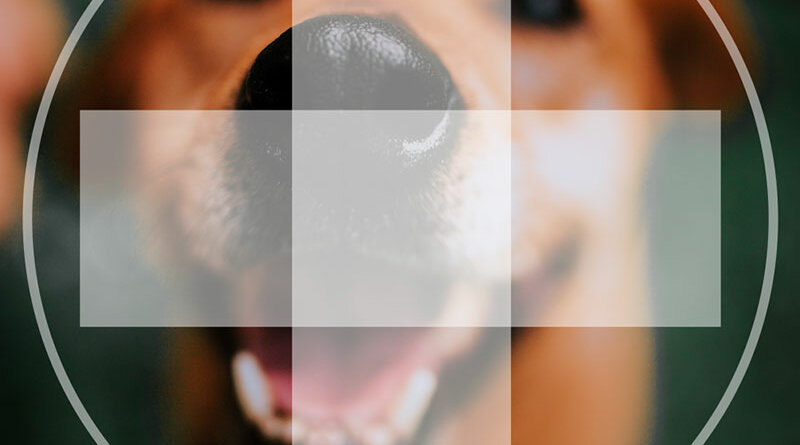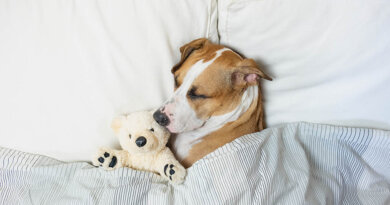Coronavirus and Dogs: Everything You Need to Know
What do we know? What should we be doing? As the pandemic develops, here’s the current scoop on dog-related issues. And no, your dog doesn’t need a mask. Seriously.
Until recently, most of us were probably not that tuned into what a virus was, or did. Now, the pandemic kicked off by Covid-19, a novel coronavirus, is forcing us to pay much closer attention.
We get the same good advice from every source: Wash your hands often and thoroughly. Avoid touching your face. Keep your distance. Stay away from those who are sick. If you’re sick, self-quarantine. But where are dogs—our companions and comfort in hard (and boring) times—in this program?
The internet is both a plus and a minus in circumstances like these. While access to information is great, lots of way-less-useful intel also gets wide circulation. As a service to our readers, we’ve gone to sites that we know from experience provide reliable information, looking for helpful data. Here’s what we came up with.
GET THE BARK IN YOUR INBOX!
Sign up for our newsletter and stay in the know.
COVID-19 Coronavirus & Pets FAQ
• Can we get Covid-19 from our dogs?
Despite the highly publicized instance of a pet dog exhibiting a “weak positive” when tested for the virus, currently, there’s no evidence of active transmission from dogs to humans. If we’re sick, we’re more likely to infect them than they are to infect us. For more, see the World Small Animal Veterinary Association’s special report, “The New Coronavirus and Companion Animals.”
• Does petting our dog expose us the virus?
Highly unlikely. According to the American Veterinary Medicine Association (AVMA), “Because your pet’s hair is porous and also fibrous, it is very unlikely that you would contract Covid-19 by petting or playing with your pet.” The caveat here is that it’s theoretically possible for a dog’s coat to serve as a fomite, much like a doorknob or light switch (both of which are hard surfaces, you’ll note). Simple solutions for that anxiety, if you’re afflicted with it: wash your hands after scuffling around with your pup, and be mindful about burying your face in his/her coat.
• How can we protect our dog’s health?
While there’s no vaccination against this new coronavirus, it’s now even more important to protect our co-pilots against known disorders. Assuming the vet agrees, make sure they’re up-to-date on their vaccinations, particularly for respiratory ailments like canine flu, parainfluenza and Bordetella. On our end of the leash, in addition to the ubiquitous “wash your hands after petting” directive, we’re also advised not to allow our dogs to lick us on the nose or mouth—a wise idea, regardless. Practice good hygiene, people!
• How should we prepare to care for our dogs in the immediate future?
Just like we’d plan for any emergency: Have a two- to three-week supply of food, treats, supplements, and any preventive/maintenance medications our dog may need. Stock up on regularly used cleaning supplies for any doggy accidents (we’re looking at you, white vinegar, baking soda and Nature’s Miracle!). Note that antiviral clean-up requires a different approach; check out our tips. Consider online dog-food-delivery services. Make a plan for someone to care for our dog if we become too ill to do so.
• What about outdoor activities?
Assuming we’re healthy, on-leash walks, which are good for us and our dogs, are on the agenda. Take them solo rather than with friends, and in lightly occupied areas with plenty of space. Ditto off-leash fun. Again, it’s about social distancing, and it’s for our benefit—to disrupt transmission of the virus—rather than for our dog’s. (Both people and dogs are social animals, so we know it’s not easy!) Also, continue to be a good pick-it-up citizen. These days, many parks are not able to provide garbage service, so bring your own poop bags and be prepared to pack them out and dispose of them at home.
•What can we do inside?
Many will be spending way more time at home for the foreseeable future. Our dogs are likely to consider this a bonus, but it presents both us and our pups with challenges—as in, how to maintain a routine, avoid getting into bad habits and keep the doggo occupied when we’re trying to work. Lots of stay-at-home time also may also require new coping skills, including providing safe spaces, using barriers and ramping up training routines.
• Should professional dog-walkers take any special precautions?
Yes. Scott Weese, DVM, DACVIM, of Ontario Veterinary College’s Centre for Public Health and Zoonoses (and Worms & Germs blogger), advises those who provide commercial dog-walking services to make sure that both owner and dog are healthy, to maintain distance at the hand-off and—yes, once again—to wash their hands thoroughly between and after outings.
• Should we make (or keep) vet appointments?
Call ahead. In some areas of the country, vets are setting up systems that minimize close person-to-person contact, as well as encouraging telemedicine and over-the-phone or online follow-up. Of course, if we feel like we might be coming down with something, we need to let the vet know that as well. The visit may be able to wait.
“Data from IDEXX shows no cases to date of the novel coronavirus in thousands of dog and cat samples tested, which is good news for pets and the people who care for them.”
—Jim Blacka, DVM, IDEXX Companion Animal Commercial Business.




